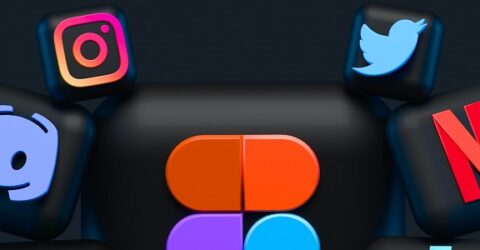It might be time to get off social media, guys.
We weigh up the pros and cons of leaving social media to help you to make a potentially life-changing decision.

It’s been 20 years since MySpace’s launch ushered in the modern age of social media, and the world is undoubtedly a different place as a result.
Whether it’s a better or worse place depends entirely on your own experiences of social media platforms.
On the one hand, resources like Facebook, Twitter and Reddit have given us crowdfunding, support networks and a renaissance in community spirit.
On the other hand, they underpin fake news, trolling and cyberstalking. If there’s a modern ill, it’ll exist on social media in an exaggerated and distorted form.
A life without social media – or at least without it prominently figuring in daily life – is increasingly helping people to cope with modern anxieties and tackle deep-seated unhappiness.
Your correspondent quit Facebook and Twitter in 2021 as they became increasingly toxic, retaining only a LinkedIn profile and a YouTube account (mainly for commenting on heavy metal videos).
A life without TikTok or Snapchat might seem unimaginable to some readers of this blog, but it’s entirely feasible – and potentially quite liberating.
If you’re considering making a fresh start in 2023, these are the key pros and cons of leaving social media…
The pros and cons of leaving social media
Pro: More free time. How often have you ended a day wishing you’d had more time, having wasted part of that day mindlessly swiping through posts you can’t even remember now?
Con: Less distraction from reality. This could also be a pro, but a stressful job or bad day may be leavened with a bit of cat video escapism, or by messaging your friends.
Pro: Real life takes centre stage. Lockdown meant we had to talk digitally, but no social media platform can replicate the psychological benefits of in-person conversations.
Con: Easy to lose touch with people. While the last point is undeniable, you might lose what contact you have with dispersed friends and relatives if you can’t talk digitally.
Pro: Less toxicity in your life. Numerous studies have linked social media use with mental health problems, self-harm, inadequacy, depression and – ironically – loneliness.
Con: Limited communications. Companies, colleagues, clients… social media platforms are vital communication channels that other people still rely on, even if you don’t.
Pro: You’ll sleep better. Smartphone usage in bed reduces the chance of sleeping well, while it’s easy to lie awake brooding on a spiteful comment or a controversial post you read earlier.
Con: Many hobbies depend on it. If you’re a photographer, gamer or club member, it can be hard to share your passions or communicate with other people outside social channels.
Pro: More privacy. Social media platforms are funded by harvesting huge amounts of public user data and reselling it to firms you’ve never heard of, for purposes you’re never told about.
Con: You might miss out. From new business launches to fundraising campaigns, social media is a conduit for spreading the word about good causes or upcoming events.
Pro: Greater self-esteem. Carefully curated social media posts and sponsored content make real life seem dull and depressing, but they’re unrepresentative of anyone’s existence.
Con: Job-hunting is harder. Many prospective employers want to learn about your digital alter ego, while sites such as LinkedIn host CVs, job ads and networking opportunities.
Pro: No more lies. From bots to trolls, it’s often hard to discern fact from fiction. Closing social media accounts reduces your exposure to fraud, airbrushing and fake news.






